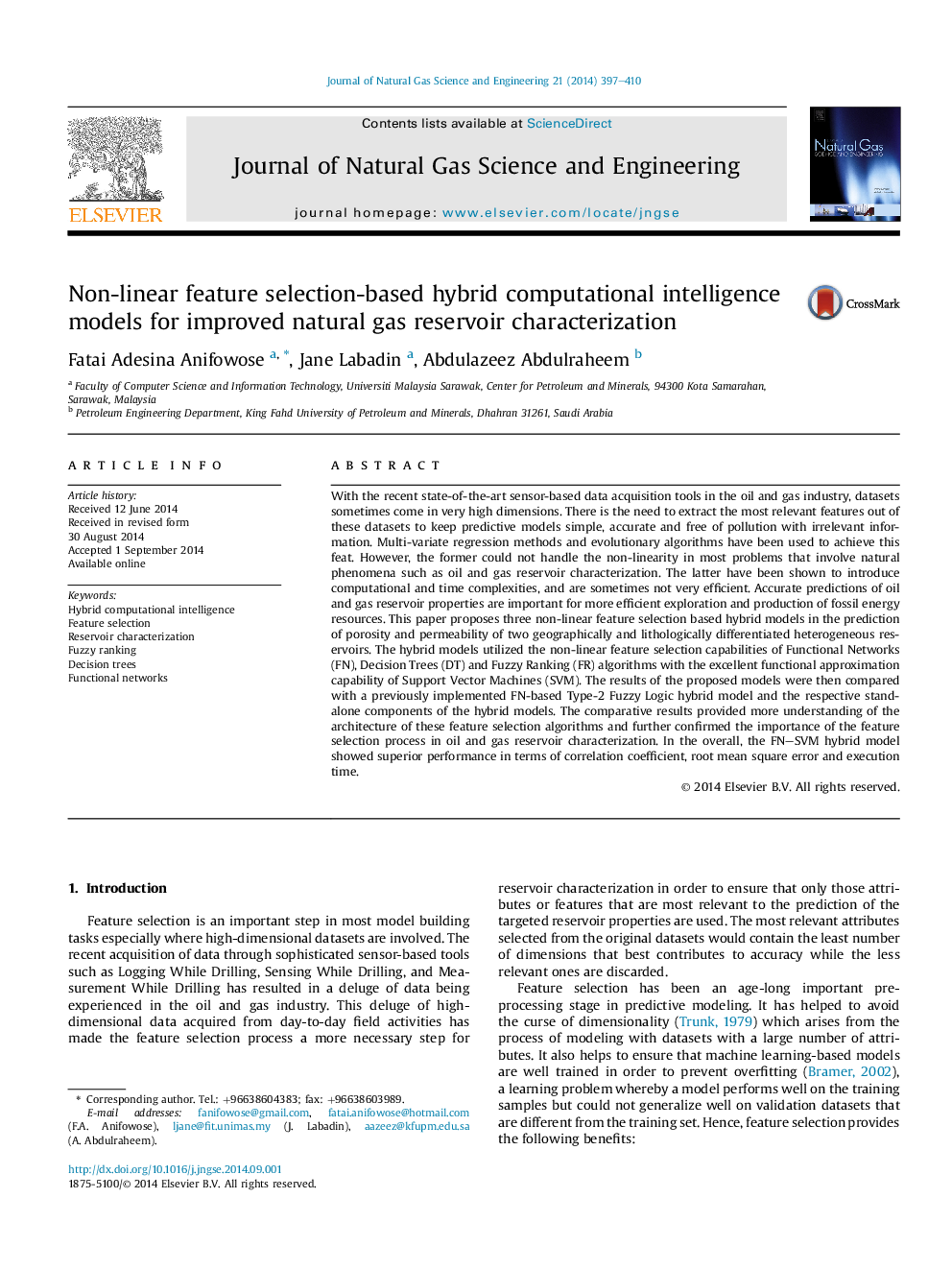| Article ID | Journal | Published Year | Pages | File Type |
|---|---|---|---|---|
| 8129221 | Journal of Natural Gas Science and Engineering | 2014 | 14 Pages |
Abstract
With the recent state-of-the-art sensor-based data acquisition tools in the oil and gas industry, datasets sometimes come in very high dimensions. There is the need to extract the most relevant features out of these datasets to keep predictive models simple, accurate and free of pollution with irrelevant information. Multi-variate regression methods and evolutionary algorithms have been used to achieve this feat. However, the former could not handle the non-linearity in most problems that involve natural phenomena such as oil and gas reservoir characterization. The latter have been shown to introduce computational and time complexities, and are sometimes not very efficient. Accurate predictions of oil and gas reservoir properties are important for more efficient exploration and production of fossil energy resources. This paper proposes three non-linear feature selection based hybrid models in the prediction of porosity and permeability of two geographically and lithologically differentiated heterogeneous reservoirs. The hybrid models utilized the non-linear feature selection capabilities of Functional Networks (FN), Decision Trees (DT) and Fuzzy Ranking (FR) algorithms with the excellent functional approximation capability of Support Vector Machines (SVM). The results of the proposed models were then compared with a previously implemented FN-based Type-2 Fuzzy Logic hybrid model and the respective standalone components of the hybrid models. The comparative results provided more understanding of the architecture of these feature selection algorithms and further confirmed the importance of the feature selection process in oil and gas reservoir characterization. In the overall, the FN-SVM hybrid model showed superior performance in terms of correlation coefficient, root mean square error and execution time.
Related Topics
Physical Sciences and Engineering
Earth and Planetary Sciences
Earth and Planetary Sciences (General)
Authors
Fatai Adesina Anifowose, Jane Labadin, Abdulazeez Abdulraheem,
